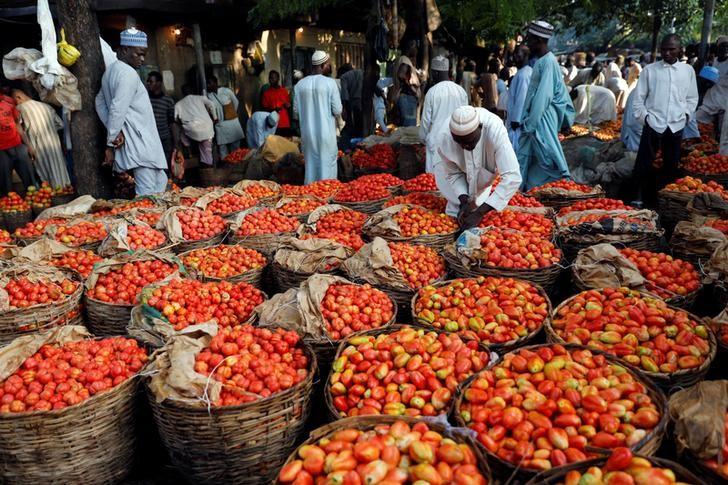Nigeria’s National Bureau of Statistics (NBS), on Tuesday released the Consumer Price Index data for the month of September with headline inflation growing by a marginal 0.05% to 11.28% year-on-year, from 11.23% in August.
Food inflation for the period stood at 13.31%, from 13.16%, while Core inflation dropped to 9.80% from 10.0%.
Month-on-Month inflation growth was slower at 0.84% in September 2018, from 1.05% in Aug 2018, a drop by 0.21%.
“The percentage change in the average composite CPI for the twelve months period ending September 2018 over the average of the CPI for the previous twelve months period was 13.16%, showing 0.39% point from 13.55% recorded in August 2018,” according to the NBS.
Urban inflation rate was up by 11.7% (year-on-year) in September 2018 from 11.67%, while the rural inflation rate climbed by 10.92% from 10.84% in August 2018.
Month-on-month, urban index rose by 0.86%, down by 0.14% from 1.0% in August, while rural index also rose by 0.82% in September 2018, down by 0.14% from the rate recorded in August 2018, compared to the previous 0.96%.
All items inflation YoY was highest during the period in Kaduna, which recorded 12.93%, trailed by Ebony, 12.86%; and Bayelsa, 12.83%; while Cross River recorded the slowest growth for the month as 8.42%; ahead of Plateau, 8.77% and Ogun, 9.22%. MoM also, inflation was highest in Kebbi, 1.91%; Kwara, 1.89% and Taraba, 1.47% and lowest in Cross River, Nasarawa and Plateau, which recorded negative inflation or price deflation (a general decrease in the general price level of goods and services in the month of September.
Composite food index for the period rose by 13.31%, compared to 13.16% in August
2018, boosted by increases in prices of such items as Potatoes, yams and other tubers, vegetables, fruits, meat, milk, cheese and egg, Bread and cereals, and Fish.
Average annual rate of change of the Food sub-index for the twelve-month period ending September 2018 over the previous 12-month average was 15.92%, 0.58% points from the average annual rate of 16.5% change recorded in August. State by states, food inflation recorded fastest growth in Kwara at 3.39%; Adamawa, 2.59% and Kebbi, 2.23%; and was slowest in Katsina, Kogi, Nasarawa, Niger and Plateau, which recorded deflation or negative inflation.
Trending Today
Menu








